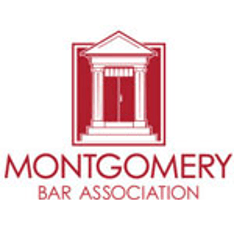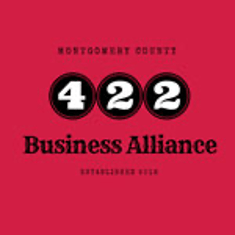BLOG
Blog
By Craig Fleischmann
•
07 Nov, 2023
Information You Need to Know About the Beneficial Ownership Information Reporting Company Rules Effective January 1, 2024 Criminals often use anonymously owned United States companies to launder money, fund terrorism, evade taxes, and participate in other unlawful activities. To detect and counter these activities, Congress passed the Corporate Transparency Act (“CTA”). The act sets forth reporting rules for all domestic and foreign companies. Every qualifying “Reporting Company” must relay Beneficial Owner Information (“BOI”), along with other pertinent data, to the Financial Crimes Enforcement Network (“FinCEN”). Download FinCEN’s Small Entity Compliance Guide through this link . A Reporting Company’s failure to comply could lead to very extreme penalties. This article provides a general overview of these definitions and reporting rules. It also outlines the deadlines, penalties, and exemptions. What is a Reporting Company? A Domestic Reporting Company is any entity that is required to formally file a document with a U.S. state, territory, or Native American Tribe to establish its existence (e.g. corporation, limited liability company [“LLC”]). A Foreign Reporting Company is any non U.S. entity that has formally filed documents to do business with any U.S. state, territory, or Native American Tribe. U.S. territories include American Samoa, Guam, Northern Mariana Islands, Puerto Rico, and the U.S. Virgin Islands. Who Is a Beneficial Owner? A Beneficial Owner is anyone who directly or indirectly: exerts substantial control over the Reporting Company (a senior officer or anyone who appoints or removes senior officers or influences the governing corporate body or determines important matters, exerts substantial control) or owns a minimum of 25% of the Reporting Company (ownership includes equity, stock, voting rights, stock, capital or profit interests, options, and any other ownership means) If an individual satisfies either of these definitions, they are a Beneficial Owner. Individuals meeting a Beneficial Owner classification may be exempt if they are: serving as an intermediary, candidate, custodian, or on another person’s behalf a minor child acting exclusively as a Reporting Company’s employee simply a Reporting Company’s future heir just a Reporting Company’s creditor Information a Reporting Company must Detail A Reporting Company must provide detailed information to FinCEN about Beneficial Owners and the company. Reporting Companies created or registered after January 1, 2024 are required to detail information about Company Applicants. A Company Applicant is the individual who directly filed the creating or registering Reporting Company documentation, as well as the individual primarily responsible for controlling such filings. A Reporting Company can have several Company Applicants. Companies or legal entities cannot be company applicants. Information a Reporting Company Must Provide to FinCEN A Reporting Company must disclose its: complete legal name, any trade name, and any “doing business as” name current address formation or registration jurisdiction IRS Taxpayer Identification Number (TIN) Employer Identification Number (EIN) For Foreign Companies: Foreign Tax ID Numbers and Territory Name Beneficial Owners and Company Applicants (when applicable) must provide their: full legal name birth date complete current address (Company Applicant’s may use business addresses) Beneficial Owners and Company Applicants (when applicable) must also supply images, designation numbers, and the issuing venues of one of the following, unexpired, identification documents: state driver’s license passport state, local government, or Native American Tribal identification document foreign passport (if none of the aforesaid exist) FinCEN Reporting Method Every Reporting Company created or registered to do business before January 1, 2024 will have until January 1, 2025 to file their initial report. Every Reporting Company created or registered on or after January 1, 2024, will have 30 days to file their initial report (beginning from the state’s date of notice or public creation notice – whichever is earlier).*** ***FinCEN Update November 29, 2023*** FinCEN Extends Deadline for Companies Created or Registered in 2024 to File Beneficial Ownership Information Reports FinCEN is extending the deadline for certain reporting companies to file their initial BOI reports. Specifically, reporting companies created or registered in 2024 will have 90 calendar days from the date of receiving actual or public notice of their creation or registration becoming effective to file their initial reports. Reporting companies created January 1, 2025 or after will have 30 days to report. Should a report contain any errors, a Reporting Company has 30 days from the date it discovered the error or had reason to know of the error to file a corrected report. Should Beneficial Owners or company information change, a Reporting Company has 30 days from said change date to file an updated report. Where applicable, a Reporting Company is not required to file an updated report about Company Applicant changes. There is no BOI report filing fee. FinCEN can begin accepting electronic company reports through a secure system beginning January 1, 2024. FinCen is presently setting up the system and will be available at that time. Its website contains reference materials and other BOI resources . Potential Penalties for Not Complying with the Reporting Company Rules A Reporting Company’s failure to provide proper BOI to FinCEN could result in civil penalties of $500 for each day the violation goes on, as well as $10,000 in criminal penalties and/or two years of prison. What Businesses are Exempt? The CTA excluded certain company classes from reporting. Such classes include entities where BOI is currently a matter of public record; the government currently oversees the entity; and, where the Treasury Secretary (along with the Attorney General and Homeland Security Secretary’s concurrence) justified the exemptions. A few examples of exempted businesses include: brokers, dealers, and securities issuers banks, credit unions, and loan holding companies insurance companies public accounting firm public utilities certain tax-exempt corporations businesses that employ more than 20 full time workers certain inactive corporations Preparations You Can Make Now It is vitally important for all entity proprietors to know about the upcoming CTA’s Reporting Company requirements and whether they are Beneficial Owners and potential Company Applicants. To streamline the process and protect yourself and your business from penalties, consult with a professional advisor. Watch this space for future blogs about this and other corporate law updates and amendments. The Fleischmann Law Firm, P.C. The Fleischmann Law Firm specializes in business law and can guide your corporation through these and other time-sensitive reporting regulations. Its attorneys partner with you to minimize risk and liability, offer objective and fair assessment, and weigh all circumstances and options. They offer solid recommendations and provide superior representation. Attorney Craig J. Fleischmann and staff offer over three decades of experience, integrity, cost-effectiveness, value, and integrity. Contact the Fleischmann Law Firm today.
By Craig Fleischmann
•
27 Sep, 2023
State Corporate Codes Each state has a set of laws that set forth the definitions, duties, and requirements of how business owners or shareholders must operate and manage the establishment, be it a corporation, limited liability company (“LLC”) or other commercial entity or association. The laws cover everything involving the business, including its name, registered agents, mergers, registrations, and much more. Often, these laws or regulations are “defaults” where no one properly drafted documents, such as bylaws, shareholder agreements, or LLC operating agreements. Some are mandatory provisions. The state in which the individuals who created a corporation and filed the proper documents, regardless of structure, is the governing or home state. That state might have been the corporation’s primary location, where it conducts business, or the state could have offered tax and liability advantages. Non-formation states are “foreign” states. Now and then, state legislatures amend state codes. Such allows policy updates without having to replace the laws. Recent Updates to Pennsylvania Title 15 On November 3, 2022, Governor Tom Wolf signed Act 122 of 2022 (the “Act.”) into law, which updated Title 15 of the Pennsylvania Consolidated Statutes -- Corporations and Unincorporated Associations. The Act revisions focused on the following areas: New State Department Filing Requirements : currently, Pennsylvania relies on a ten-year (decennial) filing requirement to determine whether a business entity is still active. This led to confusion about whether businesses still existed, potential fraud, and other misunderstandings. The Act restructures the filings to annual reporting (like most other states require) requirement, beginning in 2025. Entity type will determine filing deadlines. The annual filing fee is $7.00, which the state will waive for nonprofit corporations and not-for-profit Limited Partnerships or LLCs. Most importantly, a businesses’ failure to file the newly required annual report will subject it to administrative dissolution/termination/cancellation and loss of its protected name. Businesses will want to be sure that their registered address with the Department of State is current so that they receive proper notices. Entity types that the Act requires new annual reporting: o Domestic Business Corporations o Domestic Nonprofit Corporations o Domestic Limited Liability (General) Partnerships o Domestic Electing Partnerships that are Not Limited Partnerships o Domestic Limited Partnerships (Including Limited Liability Limited Partnerships) o Domestic Limited Liability Companies o Domestic Professional Associations o Domestic Business Trusts o All Registered Foreign Associations The new annual reports require the following information: o Business name o Formation jurisdiction o Registered office address o Name of at least one governor (director, member, partner, etc. depending on type of association) o Principal officers’ names and titles (if any) o Principal office address o Pennsylvania Department of State entity number Delaware’s Corporate Law and the Model Business Corporation Act Inspired the Act’s Additional Modernizations : Delaware’s sophisticated business statutes and courts generally favor corporate values. The American Bar Association created the Model Business Corporations Act for states to adopt, should they wish. It innovatively address a variety of business topics, including corporate creation, LLCs, corporate management structure, and shareholder’s rights. These progressing sources prompted some of the following updates: o Ratification procedures : the updated rules specified that: the board of directors must approve agreements. whenever a corporate statute, document (such as a shareholder’s agreement or incorporation certificate), or other applicable rule requires agreement, shareholder approval is mandatory. if a defective corporate action requires any kind of filing, the entity must also file a confirmation filing with the Pennsylvania State Department. o Abandonment of Business Opportunities : profit and nonprofit corporations may back out of business opportunities and shareholders are no longer required to notify the corporation of potential prospects. Abandonment may be unconditional, restricted, included in the articles of incorporation, or the board of directors may agree. o Officer Fiduciary Duties; Business Judgment Rule : some of the modified amendments stated that: a director’s obligation to investigate possible issues does not go past what the law requires. shareholders may limit the officer’s personal liability (with exceptions). a director sole duty is to the corporation (not creditors). o Forum Selection : the articles of incorporation may offer a court resolution site, which must include at least one Pennsylvania state court. It may designate other courts, so long as there are reasonable relationships between the corporation and the other territories. Stay tuned for future blogs to further clarify, detail, and explain the amendments. The Fleischmann Law Firm, P.C. The Fleischmann Law Firm specializes in business law and can guide your corporation through these important, time-sensitive changes. Its attorneys partner with you to minimize risk and liability, offer objective and fair assessment, and weigh all circumstances and options. They offer solid recommendations and provide superior representation. Attorney Craig J. Fleischmann and staff offer over three decades of experience, integrity, cost-effectiveness, value, and integrity. Contact the Fleischmann Law Firm today.
16 Aug, 2021
During the COVID-19 outbreak, a lot of people were itching for a reason to get out of their homes without spreading the coronavirus to others. This is when many people took advantage of being outdoorsy. Since the beginning of time, having fun in the great outdoors has been a wonderful pastime for people of all ages and places, even without the feeling of breaking the rules. Venturing through the arteries of Pennsylvania’s trail system is something that The Fleischmann Law Firms associate, Franqui Raffaele, chose to explore during quarantine, and still continues to use as a way to keep the stress away. The trail she explored the most was the Perkiomen Trail. This trail is a clean, family friendly environment that welcomes people of all ages to come and enjoy the beauty of nature. To hear more about why Franqui recommends the Perkiomen Trail, take a look at the article that she wrote for sidebar magazine HERE
14 Jul, 2021
Pennsylvania is an area that is rich in history and culture. There are buildings here that have been here that predate the independence of this country. These buildings are time capsules that have stood the tests of time and deserve to remain preserved. The Fleischmann Law Firm is happy and proud to support Historic Trappe, an organization dedicated to the preservation of four historic Trappe, Pennsylvania buildings.
Historic Trappe, executively directed by Lisa Minardi, not only restores historic buildings in Trappe, but they also encourage the preservation of other historic buildings, as well as heritage tourism. They offer plenty of different activities and workshops, community dinners and outings, and even the Trappe Tree Lighting. They also have two colonial gardens which can be visited by the public.
For more information about Historic Trappe, you can check their website at www.historictrappe.org
and to read their article, click HERE
By Craig Fleischmann
•
16 Jun, 2021
Learning to read is a normal part of growing up, but some children take to it a little quicker than others. In actuality, approximately 20 million children in public schools are either completely or functionally illiterate. Which is why The Fleischmann Law Firm is proud to highlight the American Youth Literacy Foundation or AYLF. With [..]
The post American Youth Literacy Foundation appeared first on The Fleischmann Law Firm, P.C..
By Craig Fleischmann
•
25 Jan, 2021
Nestled along the Perkiomen creek lies the picture-perfect town of Collegeville. This charming little town prides itself as being a friendly and safe place to live and work. This month, The Fleischmann Law Firm is proud to Sponsor the non-profit group, Collegeville Economic Development Corporation. They work hand in hand with Collegeville Borough to bring [..]
The post Welcome to Collegeville appeared first on The Fleischmann Law Firm, P.C..
By Craig Fleischmann
•
19 Jan, 2021
Welcome Franqui Raffaele, and congratulations on being published in the Montgomery County Bar Association Sidebar Magazine When it comes to your estate planning, there is nothing more important than making sure that everything is done correctly, which is why The Fleischmann Law Firm is happy and proud to announce our newest Associate Attorney, Franqui-Ann J. [..]
The post Franqui Raffaele and the Ghost of Bar Preps Past appeared first on The Fleischmann Law Firm, P.C..
By Craig Fleischmann
•
10 Nov, 2020
Having trouble with writer’s block, stifling creativity, or looking for a space to express yourself? Prepare to be blown away. Sitting right in the middle of Spring City, Chester County is a safe and affordable space where artists and writers alike can go and thrive. This place is called Creative Light Factory. Opening its [..]
The post Creative Light Factory: Writers Room ∙ Learning Center ∙ Creativity Hub appeared first on The Fleischmann Law Firm, P.C..
By Craig Fleischmann
•
15 Sep, 2020
United States District Court Judge William S. Stickman, IV holds as follows: The Court closes this Opinion as it began, by recognizing that Defendants’ actions at issue here were undertaken with the good intention of addressing a public health emergency. But even in an emergency, the authority of government is not unfettered. The liberties protected [..]
The post Governor Wolf’s Emergency Shutdown Orders Ruled Unconstitutional: Full Opinion appeared first on The Fleischmann Law Firm, P.C..
By Craig Fleischmann
•
01 Sep, 2020
What’s your SCORE? Opening its doors in 1991, the TriCounty chapter of SCORE, or Service Corps of Retired Executives, SCORE is the nation’s largest network of volunteer, expert business mentors. Based in Pottstown, PA, SCORE TriCounty Chapter serves up and down Montgomery county, getting a lot of business near highway 422. With more than 350 [..]
The post What’s your SCORE? appeared first on The Fleischmann Law Firm, P.C..
The Fleischmann Law Firm, P.C. serves clients throughout Pennsylvania including Skippack and Montgomery County. If you need an attorney for your business or estate planning/administration needs, contact The Fleischmann Law Firm, P.C. today.
Request consultation
Thank you for contacting us.
We will get back to you as soon as possible.
We will get back to you as soon as possible.
Oops, there was an error sending your message.
Please try again later.
Please try again later.
Request consultation
© 2021 The Fleischmann Law Firm, P.C. All Rights Reserved.






